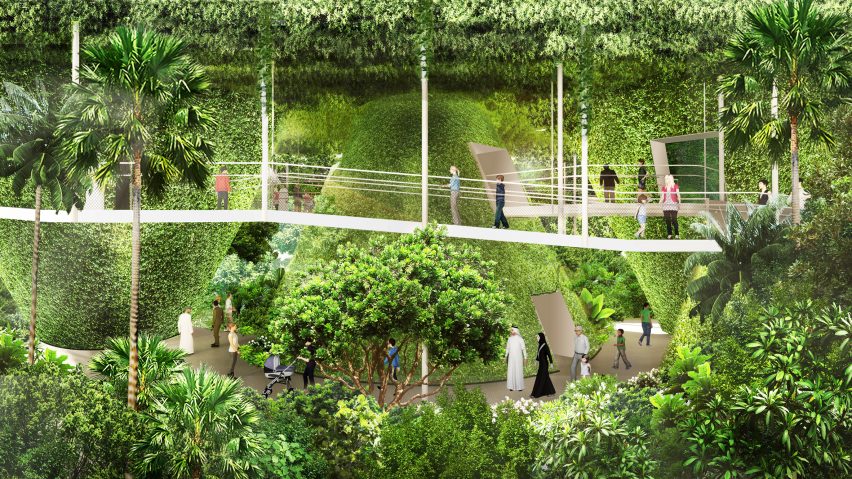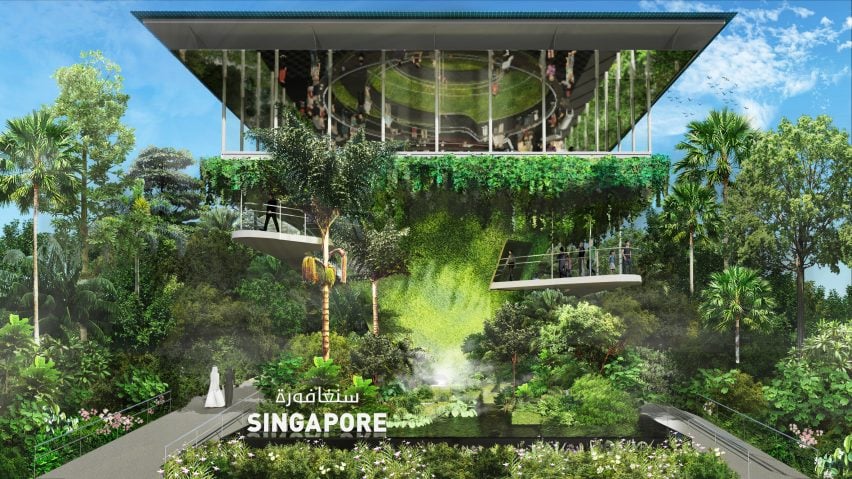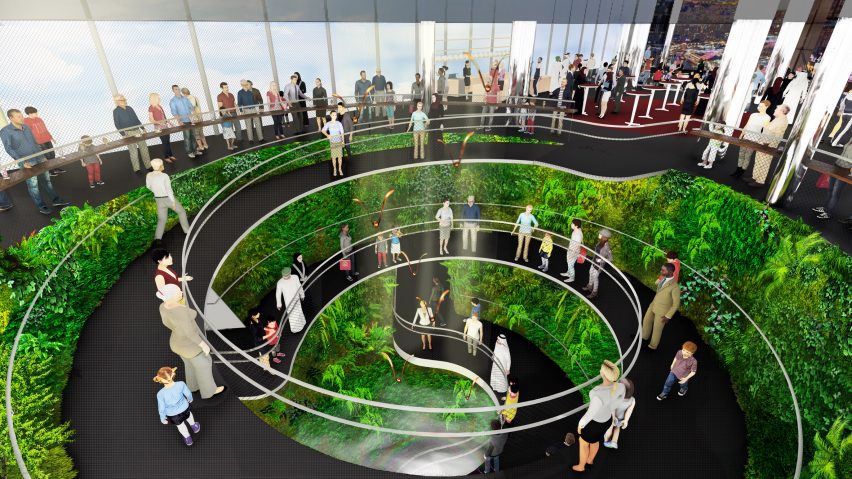
WOHA to bring "lush tropical oasis" to the desert for Dubai Expo 2020
WOHA has revealed visuals of the self-sufficient Singapore Pavilion for the Dubai Expo 2020, which will have plant covered walls and hanging gardens.
Set to be built in the expo's sustainability district, the pavilion will be designed to reflect Singapore's determination to alleviate global warming and become "one of the greenest places in the world".
It will operate using only solar energy and desalination systems, and will have zero net energy consumption over the six month course of the Dubai Expo.

"With our design, we aim to show that it is possible to build a self-sufficient green oasis anywhere in the world, even in the desert," said Wong Mun Summ, co-founding director of WOHA.
"Planting more trees and creating more green spaces is the best way to take immediate action against climate change – recent studies show it to be the most effective, cost-efficient and broadly available solution to combat global warming and it can be done now, anywhere."
Visitors to the expo will be welcomed to the Singapore Pavilion by a lush garden of tropical trees, shrubs and a small pond flanked by ramps. These ramps will lead up to the centre of the pavilion, where WOHA has designed three giant cones.
Named the Garden Cones, these volumes form the pavilion's main structure, and will be wrapped in plants and joined at ceiling level by hanging gardens.
Suspended from these hanging gardens, a series of white, meandering walkways will weave in, out and around the cones to lead visitors to the top floor of the pavilion.

The top floor will be used as a "sky market" – a retail and dining space where visitors will be invited to buy and eat traditional food from Singapore. This will be topped by the flat solar roof, which will generate electricity while providing shade and shelter for visitors.
"The uniqueness of the Singapore Pavilion is that, despite its location in the desert, it is green, soft and alive, demonstrating the great potential of the respectful, seamless integration and coexistence of nature and architecture," concluded the studio.
"It represents a captivating and forward-looking Singapore, one that is sociable, sustainable and liveable, and shows a way architecture can make a meaningful contribution to the fight against the effects of climate change."
Opening on October 20, 2020, The Dubai Expo is expected to attract over 25 million visitors. In the sustainability district, WOHA's design will be joined by the Dutch pavilion that will feature a "closed-loop climate system" centred around a tower of plants.
Among the other designers contributing to the event include Es Devlin, who is creating the UK's pavilion, and Fentress Architects, which is overseeing the US pavilion that will feature a hyperloop simulator.
WOHA is a Singapore architecture studio headed by Wong Mun Summ and Richard Hassell in 1994, who also founded WOHAbeing in 2017.
Other recent projects by the studio include outdoor cabins that connect to the Goodwood Residence apartments, and a plant covered building for senior citizens for which it received World Building of the Year in 2018.